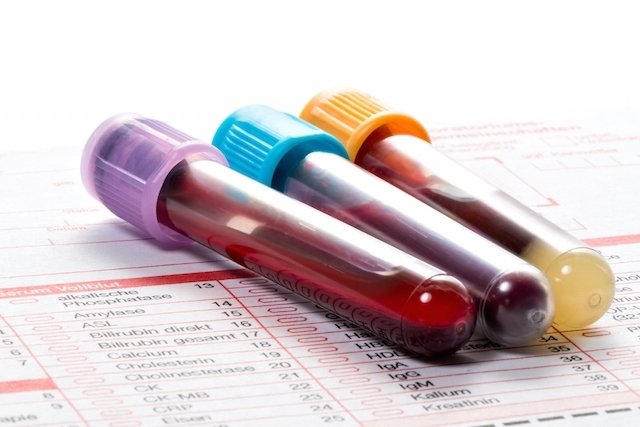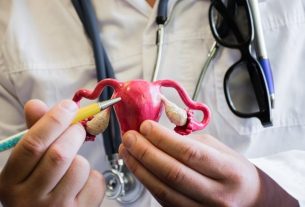Prolactin is a hormone that, despite being responsible for the production of breast milk, in men, has other functions, such as relaxing the body after reaching orgasm, for example.
Normal prolactin values in men are less than 10 to 15 ng/mL, but it can reach much higher values due to illness, use of medications that have this side effect, or due to a brain tumor.

Symptoms of high prolactin in men
Milk coming out of a man’s nipple may be present in some cases and can be observed when the doctor presses on the darker area of the breast. Other symptoms are:
- Decreased sexual desire;
- Sexual impotence;
- Decrease in the number of sperm;
- Reduction of testosterone levels;
- Breast enlargement and milk secretion may occur rarely.
Other less common signs and symptoms are headache, changes in vision due to optic nerve atrophy and cranial nerve palsy, which are more common in men than in women, probably because in men the tumors are generally larger than in women. .
In the presence of these symptoms, the doctor may indicate the measurement of prolactin levels in the blood, in addition to imaging tests to better assess the gland responsible for producing this hormone, and a head X-ray or MRI may be recommended.
Main causes
The increase in prolactin in men may be related to the presence of tumors in the pituitary gland, called prolactinomas, which is the gland responsible for producing prolactin. However, increased prolactin levels are more often associated with the use of medications, the main ones being:
- Antidepressants, such as alprazolam, fluoxetine, paroxetine;
- Medicines for epilepsy, such as haloperidol, risperidone, chlorpromazine;
- Medicines for stomach and nausea, such as cimetidine; metoclopramide, domperidone and cisapride;
- Medicines for high blood pressure, such as reserpine, verapamil, methyldopa, atenolol.
Furthermore, other situations that can increase prolactin in men are diseases such as sarcoidosis, tuberculosis, aneurysm, kidney failure, liver cirrhosis and hypothyroidism.
How the treatment is carried out
Treatment for high prolactin in men must be indicated by a urologist and aims to prevent complications from increased prolactin, such as infertility and sexual changes, in addition to promoting bone strengthening. Furthermore, the treatment indicated may vary according to the increase in prolactin.
If the increase in prolactin is due to the use of a medication, the doctor may recommend suspending, changing the dose or changing the medication. However, in cases where the increase in this hormone is related to the presence of tumors, it may be necessary to use medication and perform surgery when the tumor is large or increasing in size.

Sign up for our newsletter and stay up to date with exclusive news
that can transform your routine!
Warning: Undefined array key "title" in /home/storelat/public_html/wp-content/plugins/link-whisper-premium/templates/frontend/related-posts.php on line 12
Warning: Undefined array key "title_tag" in /home/storelat/public_html/wp-content/plugins/link-whisper-premium/templates/frontend/related-posts.php on line 13



